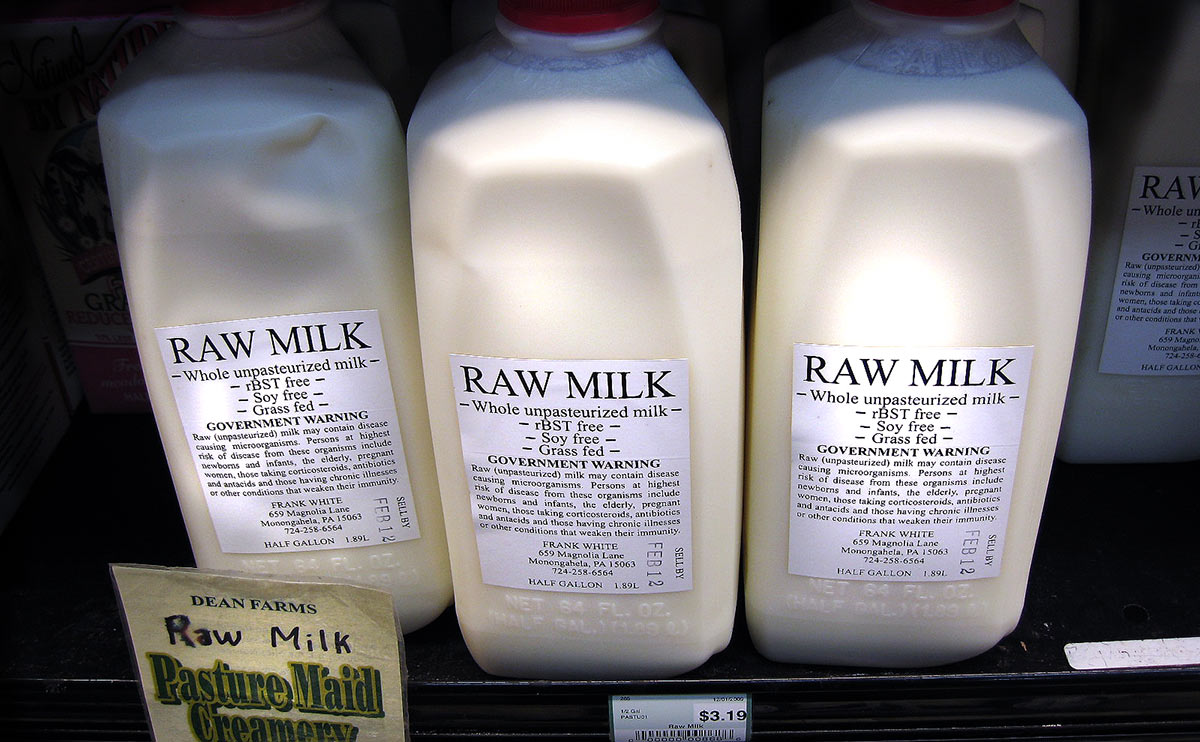
In a recent study published in the Journal of Medicinal Food, researchers at Soochow University in China discovered additional benefits of drinking milk. Besides supporting bone health, they found that milk, particularly raw milk, contains a multifunctional protein that can help protect against atherosclerosis.
The anti-atherosclerotic effects of lactoferrin in raw milk
Raw milk from cows and humans contains a variety of immunomodulatory proteins, including immunoglobulins and lactoferrin. Both are structurally known as glycoproteins because they have carbohydrates attached to them. Lactoferrin, in particular, has gained considerable attention in recent years because of its beneficial properties. A major component of the mammalian innate immune system, lactoferrin exhibits anti-inflammatory, anti-cancer and antimicrobial activities against a wide range of microorganisms.
According to recent studies, lactoferrin also exerts beneficial effects on lipid metabolism. However, this property is yet to be fully explored. To determine if lactoferrin can prevent or inhibit the progression of atherosclerosis -- a serious heart condition caused by the buildup of cholesterol in the arteries -- the Chinese researchers decided to test lactoferrin on mice genetically engineered to be deficient in apoprotein E (apoE), a protein involved in the metabolism of lipids. The lack of this protein made the animals prone to atherosclerosis.
The researchers fed 48 apoE-deficient mice with a high-fat diet that contained 1.25 percent added cholesterol. They then divided the animals into four treatment groups. One group (denoted HFCD) received only distilled water, while the other three received low-, medium- and high-concentration lactoferrin solutions, respectively, for 12 weeks.
The researchers conducted glucose tolerance tests (OGTT) at weeks 0, 4, 8 and 12 and measured serum, liver and fecal lipid levels at the end of the experiment. They also conducted pathological examination of the livers, whole aortas and aortic sinuses of the mice, and measured the expression of proteins related to cholesterol synthesis, absorption and excretion.
The researchers found no significant difference between the body weight, food intake and OGTT results of the four groups. However, the groups that received medium- and high-concentration lactoferrin solutions (MLF and HLF) had significantly reduced serum and liver cholesterol levels compared to the HFCD group. This reduction was accompanied by a significant increase in their fecal cholesterol content, suggesting that lactoferrin helps reduce cholesterol levels by promoting its excretion.
The researchers also found that lactoferrin treatment alleviated hepatic steatosis -- fat accumulation in the liver -- and lipid droplet formation. In addition, the protein helped decrease the average lesion areas in the whole aortas of atherosclerotic mice, especially in the MLF group. (Related: Drinking raw, organic milk improves your health.)
In the livers of lactoferrin-treated mice, the researchers observed a decrease in the expression of HMG-CoA reductase and an increase in the expression of cholesterol 7-alpha hydroxylase. HMG-CoA reductase is a rate-limiting enzyme involved in cholesterol synthesis, while cholesterol 7-alpha hydroxylase is a rate-limiting enzyme involved in the synthesis of bile acid from cholesterol. Lactoferrin also decreased the expression of Niemann-Pick C1-like 1 protein, which binds to a critical mediator of cholesterol absorption in the intestines.
Based on these findings, the researchers concluded that lactoferrin alleviates atherosclerosis by decreasing cholesterol synthesis and absorption and increasing cholesterol excretion.
Raw milk vs. pasteurized milk
In recent years, many people have switched to raw milk despite warnings by proponents of pasteurization about the supposed dangers of drinking unpasteurized milk. But the study above is yet more proof that raw milk does offer better health benefits than pasteurized milk.
Although both types of milk contain lactoferrin, research suggests that raw milk contains significantly more lactoferrin than pasteurized milk. A study published in Food Research International reported that pasteurization decreases the lactoferrin content of raw milk by up to 40 percent. Heat treatment also decreases the antimicrobial activity of lactoferrin by reducing its iron-binding capacity. Meanwhile, several studies have found that other health-promoting components of raw milk, such as immunoglobulins and lactoperoxidase -- a natural antibacterial and antiviral agent -- are similarly reduced by pasteurization.
To enjoy the full benefits of milk, including its protective effects against atherosclerosis, choose the healthier option and switch to lactoferrin-rich raw, organic milk. You can learn more about its advantages over pasteurized milk at FoodScience.news.
Sources include:
Please contact us for more information.





















